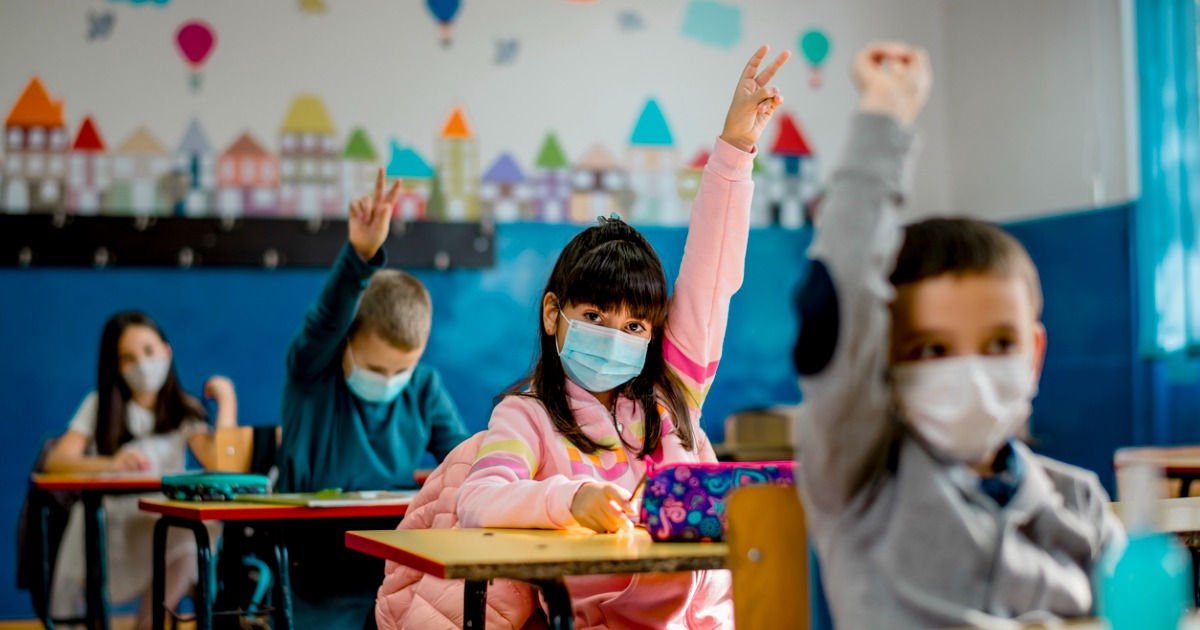We need to encourage kids to start changing the way they talk about people who wear masks.
This is tricky because masks have become a symbol of the entire COVID-19 pandemic. They are our protection against what could be a serious illness, but they can also cause us to make assumptions about people.
For example, kids who choose not to wear masks may assume that their peers who do are “too scared,” “anti-vax,” or even, “contagious.” Remind your child that, even though the state has decided to end masking in schools, change is both personal and gradual. Everyone has a different idea of safety, both for themselves and for their loved ones.
It’s only human nature for kids to wonder why their peers choose to wear masks when they no longer “need to.” It’s up to us adults, however, to steer the conversation in an empowering and positive direction.
Start by encouraging kids to be their own safety advocates.
Knowledge is power! So is the ability to make informed decisions. Now is the time to talk through what it means if they choose to take off the mask, keep it on or wear it only when they feel like it. If they:
- Take the mask off—they may be more likely to catch seasonal illnesses. This does not mean they are “careless” or “insensitive.” Last summer (2021), the state of Connecticut saw a sharp rise in respiratory illnesses like RSV and common colds from late spring into summer. While no one can predict the future, this can certainly happen again.
- Keep it on—they will continue to protect themselves against illnesses, including COVID-19. This does not mean they are “scared” or “living in denial.” They are making a personal decision for their safety and the safety of others. For example, they may be living with someone who is immunocompromised.
- Wear it sometimes—ask them about their comfort level. Maybe they’ll choose to wear a mask at a crowded gathering, but not at a smaller play or study group. Empower them to decide for themselves.
Then, talk about any responses they can use to take a stand against bullying if it happens.
A little preparation can go a long way. As a parent, you have the power to:
- Help roleplay different scenarios with your kids.
- Be mindful of your own language and behavior—this means not criticizing the decisions of others in front of children.
- Be an upstander for others! Some research suggests that seeing others being bullied has the same impact as being bullied directly. When your child feels confident and empowered, they are more likely to be an upstander.
- Talk to a teacher or trusted adult if bullying happens at school
- Encourage them to stand up for themselves and then move on. One way to help them move on is to prepare them with a response back to bullying they can always use. For example, they might say, “My grandmother is living with me and I’m trying to keep her safe,” and then walk away or change the conversation.
